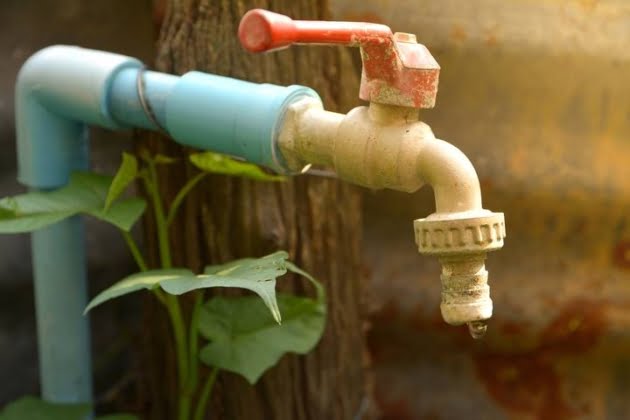Nobody wants to find a water leak in their plumbing system. Unfortunately, this is a common issue and it’s up to you to detect the leak as early as possible. If your faucet has been leaking for some time, look for pooling water around the house and inspect the foundation for cracking or shifting. Also, pay attention to any signs of mold. You don’t want this to seep into your house, so act quickly to resolve the leak.
In your outdoor faucet, a leak can lead to the loss of water pressure, frozen lines, or insufficient irrigation. If you discover the signs of a leaking outdoor faucet, contact a plumber and get it fixed right away. This will stop the water leak from getting worse. It’s important to find the source of any leaking water quickly, so make sure to check the whole plumbing system right up to the house.
How do you detect when there is a leak in your plumbing system outside? Look for these signs of a leaking outdoor faucet:
1. Faucet damage and malfunction
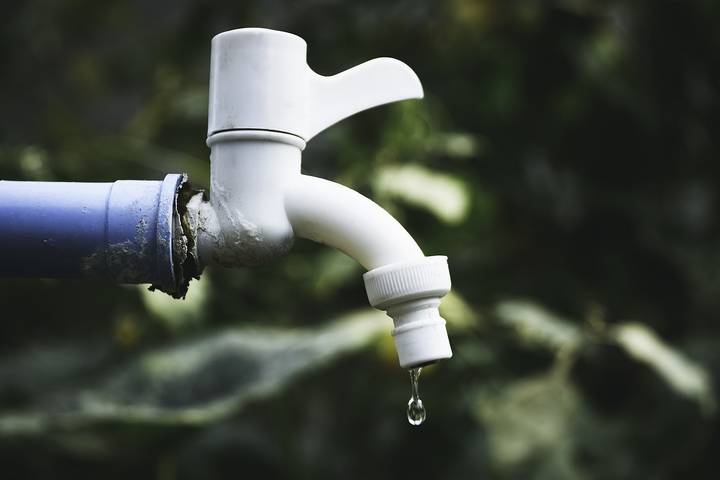
Over time, your outdoor faucet can get damaged or have worn-out parts. Typical water leaking is the result of a loose packing nut or worn-out washers in the assembly of the spigot. Make sure to check your outdoor water faucet for signs of damage, rusting, and dripping.
To fix the leak, it will require you to turn off the water supply and take apart the faucet. If it’s a washer that needs replacing, you should be able to source that from your local home improvement store. However, the problem with many leaking faucets often goes deeper, such as a cracked pipe. Call in the plumbers to repair the leaking outdoor faucet. They can also follow the water path to see if there is any damage to your home as well.
2. Pooling water in the yard
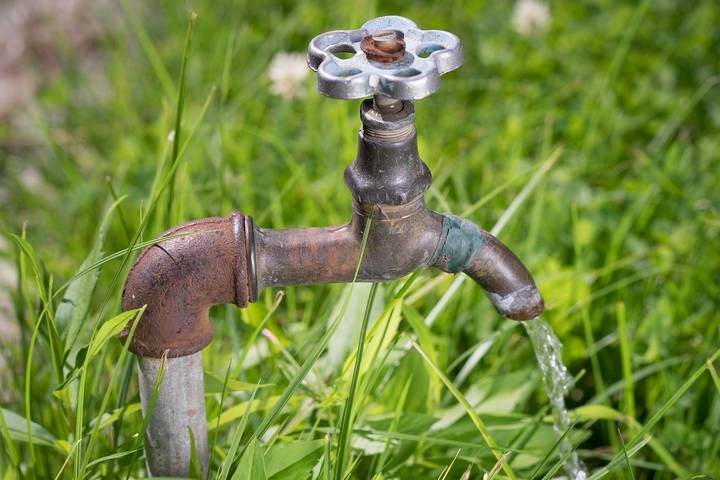
When it rains or if you water your grass, the water will naturally make its way through the soil into the ground. If you notice water starting to pool in different areas, this could be sign of a leaking outdoor faucet. Dripping water from your outdoor water spigot can accumulate over time. If it builds up faster than it can naturally drain, you will have sitting water in your yard.
3. Foundation damage
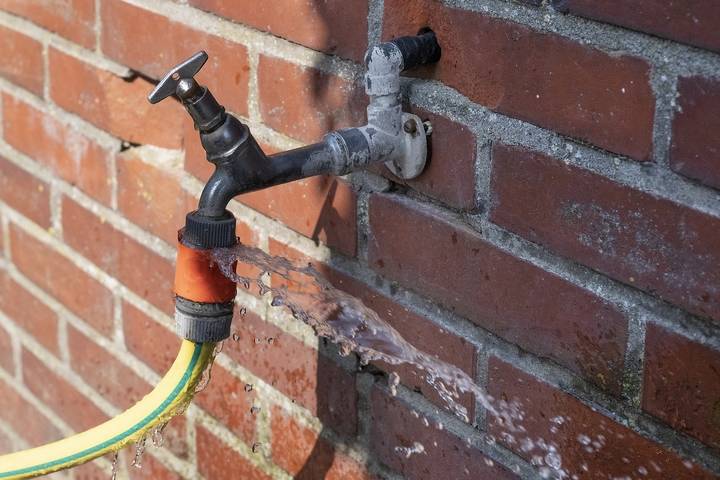
The foundation of your home is made of concrete that is poured on top of the earth. This foundation is originally very strong, but it can be weakened by a water leak. Since an outdoor faucet is connected to the side of the house, a leak can drain against the slab and work its way to the soil below.
The water will begin to wash away the clay and dirt, causing your slab to lose support and be prone to shifting or cracks. This weakens the entire house. Moisture can also find its way into the existing cracks in the foundation, causing more structural problems in your building.
4. Mold and mildew
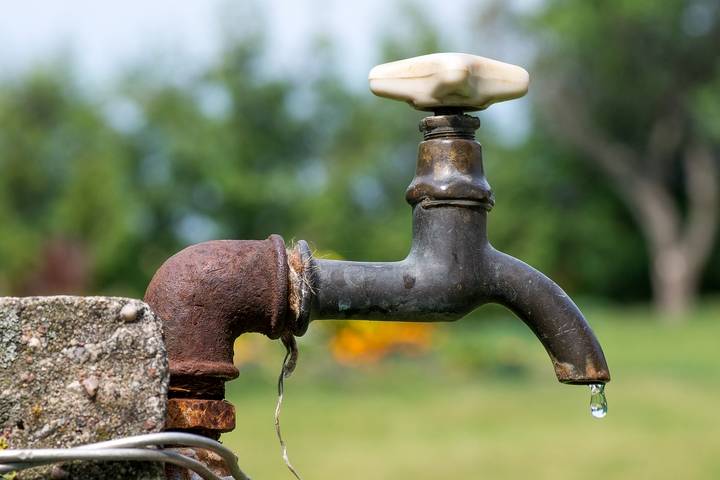
Water creates moisture, which is the breeding ground for mold. Mold is a fungus that needs water to get started, so any accumulating groundwater can begin the process. Once the mold is present, it will work its way inside the home, where the humidity and organic material is present for it to feed and grow. Soon enough, the mold will spread rapidly throughout the whole house.
To prevent this serious problem, you must avoid water from sitting around and up against your house. Mold can easily get brought into your house as well, attaching itself to people’s clothing, shoes, and pets.
5. Increasing water bills
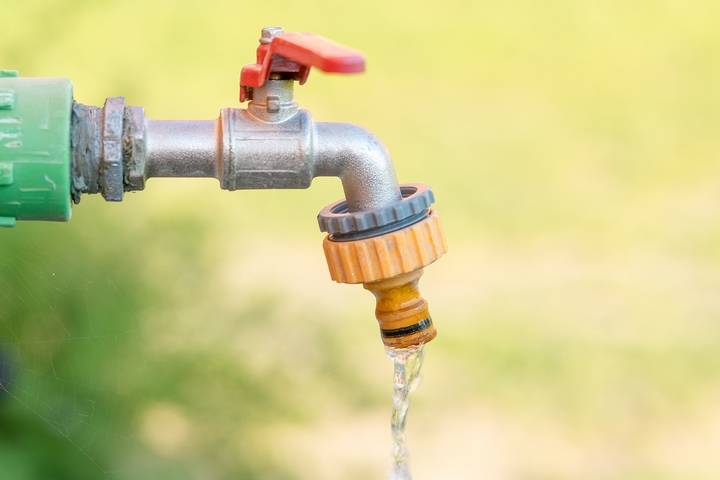
If you have been living in the same house for a while, you know how much water you use on a month-to-month basis. The exact amount will vary, but you should be alert if there is any dramatic increase in usage. Find out the reason for this sudden spike. Check the leak indicator on your water meter to see if it is moving. If so, this is the time to call a residential plumber to determine where the leak comes from.
6. Clogged and frozen pipes
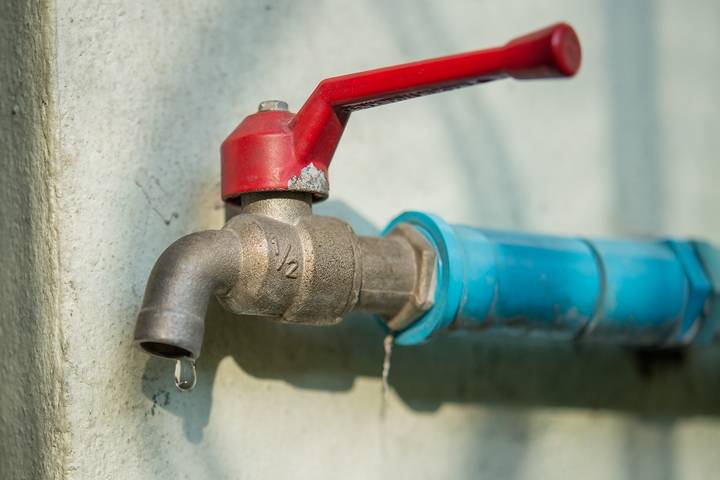
Your pipes can get clogged up over time from mineral deposits and debris. This backs up water and can create leaking from your outdoor faucet. Frozen pipes also cause the metal to contract and expand, which could eventually crack the pipe. Make sure to drain the pipes when you are winterizing your home and always close the tap properly.
7. Slow leaks
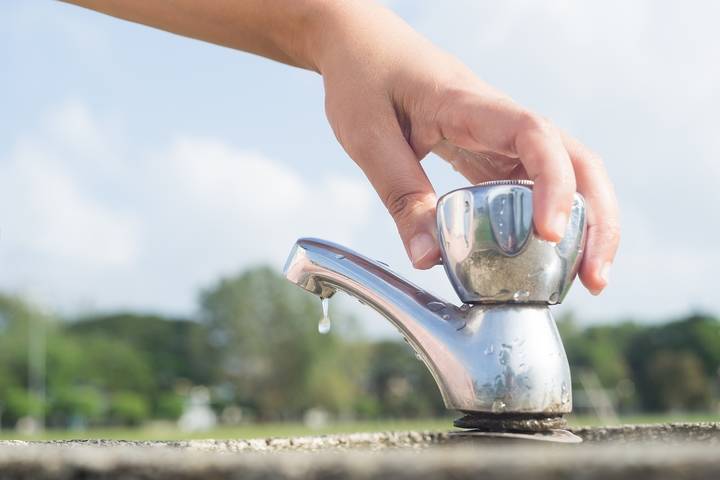
Many homeowners underestimate the severity of slow leaking plumbing. When a faucet drips perpetually, we tend to address this leak with an immediate urgency. However, it is easy to dismiss or overlook a slow leaking faucet that only drips water every once in a while. The misconception is that the minor leak can be put aside for another time.
Even outdoor faucets leaking slowly are a cause of concern. Slow drips are responsible for thousands of gallons of water waste each year. Utility costs are not cheap, so it’s important to fix the problem right away to save you money.



